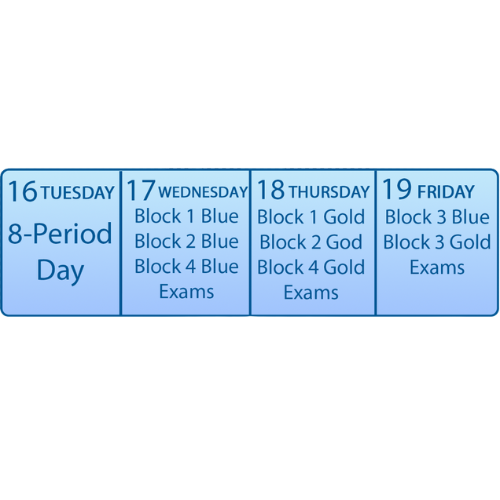The Illinois Congress approved a reform of the state’s pension system for public workers on Dec. 3, and Governor Pat Quinn signed the legislation on Dec 5.
Public-worker pensions lack $100 billion in funds as a result of the state not paying its portion of the costs over the last few decades, according to Matt Whipple, president of the Glenbrook Educators’ Association. The new legislation will compensate for that shortfall; it is projected to save $160 billion over the next 30 years. While 55 percent of the money does not exist for pension funds, the program, given the state’s overhaul, will be fully funded by 2044.
Fully funding the program would mean that the state could pay for pensions if all Illinois teachers decided to retire simultaneously. However, Whipple believes all teachers retiring simultaneously to be an unrealistic possibility and the state only needs to fund the program at about 80 percent.
“Usually a healthy funded plan is considered to be 80 percent funded,” Whipple said. “That’s what think tanks [who] talk about retirement funding programs will say. So they’re trying to get even more money than they need.”
When the bill goes into effect on June 1, 2014, it will negatively affect teachers by increasing the retirement age for those under age 45, decreasing cost-of-living adjustments (COLA) and placing a ‘cap’ on the amount of pensionable salary, according to Whipple. To compensate for the losses, teachers will have to pay 1 percent less than the current automatic 9.4 percent of salary contribution to their pension.
However, Benedict Hussmann, social studies teacher, doesn’t believe that the decrease in teacher contributions will offset the decrease in benefits.
“I’m going to get about an extra $100 every month [and that will be] where I’m going to get the savings to try and [compensate] for the thousands of dollars I’m going to lose in pensions…I don’t think that’s going to work,” Hussmann said.
Teachers presently under the age of 45 will have to work longer on a ‘sliding scale’ in order to receive a full pension when they retire, according to Whipple. For example, a teacher in their 40s might only have to work a couple of months past the current retirement age of 60, while newer teachers will have to work up to five extra years, Whipple said.
Currently, teachers receive a 3 percent compounding COLA. The bill decreases the COLA percentage and ties it to the Consumer Price Index, creating COLA ‘holidays.’ A holiday is when a retiree skips the COLA for a year. The bill would also lower the amount of money the COLA applies to from the full pension to around $30,000.
The changes will apply to current teachers and currently retired teachers. The retirees will be impacted the most, because they won’t be able to find other sources of income compared to a current teacher, according to Whipple.
“I have some opportunity to maybe set some extra money aside in a 403(b), […] but my parents are retired teachers, so they’re 70,” Whipple said. “They’re not going back to work—for them, [COLA changes are] a direct, meaningful, real loss.”
According to Whipple, the other major change is to the pension cap. Now when a teacher retires, the top four salaries in their last 10 years of work are averaged, and then their pension is 75 percent of that number. Under the new legislation, the maximum amount of pensionable salary is approximately $113,000, according to Whipple. That number is based on the Social Security wage, and it would decrease the amount South retired teachers receive.
“Glenbrook teachers at the end of their career exceed [the cap],” Hussmann said. “So senior teachers, such as myself, will see their pensions reduced by tens of thousands of dollars a year.”
For reasons like the cap and adjustments , the general opinion of the legislation by most of the South staff is not positive, according to Superintendent Dr. Michael Riggle.
“I believe they feel upset right now and somewhat betrayed. They felt like they entered into a system that was based upon [pension benefits] that had been guaranteed,” Riggle said.
Whipple believes teachers are upset because of the money that they will lose and because of the morality of the politicians’ actions.
“There’s an ethical question that frustrates me, […] that legislators can choose not to make payments they promised to make for 30 years in the face of a constitutional expectation to do that,” Whipple said. “It disappoints me. I’m embarrassed for our state legislators.”
Laura Fine, Representative from the 17th district, said that the Illinois General Assembly did not take the decision lightly.
“I can tell you that for nobody in the General Assembly this [was] an easy vote, and it’s something that was very emotional and difficult,” Fine said.
Fine believed that because of the large costs of the system, the bill was the right choice for the future.
“Unfortunately the state can’t keep up with [pension] payments,” Fine said. “We needed to make a change because we have younger teachers in the system right now and we want to make sure it’s the same for when they retire.”
While teachers will be impacted by the legislation, the district itself is not currently affected, according to Riggle. However, the bill could change how teachers approach retirement, which will ultimately affect the district especially during times of increasing enrollment.
“I think it will have an impact potentially on how quickly people will choose to retire and what we hope doesn’t happen is that people will rush into a retirement,” Riggle said.
In addition to the amount of teachers retiring, the district could be affected by the shifting of pension costs from the state to local districts if the state decided it no longer could pay. This could happen if some or all of the bill is struck down in court.
“If the state said we’re not paying anymore, [..] that would be a real cost to the district which would change all their financial calculations including things like what do we do with salaries and benefits and building operation budgets,” Whipple said.
Currently, the only school system that pays for its employees pensions is Chicago Public Schools, according to Whipple.
The next step for the legislation is the Illinois court system, where a coalition of public workers unions called “We Are One – Illinois” has promised to challenge the bill’s constitutionality.








